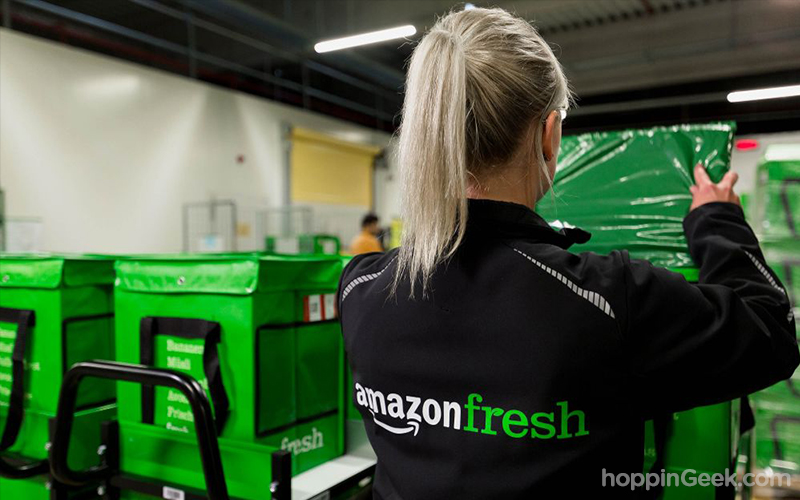In this growing world of internet and web services, everything is changing and updating rapidly, from our shopping to food distribution experience, even these days way of our grocery shopping too. According to Jeff Bezos, this is more environmentally friendly than traditional shopping practices.
In an annual letter to shareholders, the Amazon CEO Jeff Bezos told about sustainable shopping habits. Bezos has long back told that e-commerce is friendlier to the environment than retail shopping, as it eliminates the need for separate trips from stores to home for every consumer
According to Bezos, their scientists have developed a model to compare the carbon footprints of ordering the food market groceries online versus offline – Mean driving to the local food market and purchasing of the food groceries.
“The study found that averaged across all basket sizes, online grocery deliveries generate 43% lower carbon emissions per item compared to shopping in stores. Smaller basket sizes generate even greater carbon savings.”

Experts agreed to point that grocery delivery to your doorstep, can be more efficient than the traditional process of shopping but it all depends on some important points. The type of delivery vehicle, number of orders, and speed with which a customer expects the items to arrive all impact the carbon footprint.
Now, According to the detailed analysis by the experts found that, if every person takes roundtrips every day only for groceries there will be hundreds and thousands of roundtrips every single day, while a single delivery van of Amazon can deliver groceries to multiple consumers in only one roundtrip.
Amazon is continuously working to reduce the carbon footprint of its delivery service vehicles by adapting to electric delivery vans. However, Amazon has already a good name for delivering the products on time.
Anyway, Shoppers mode of transportation also plays an important role, if a person is driving alone to a grocery store results in large carbon footprints, but walking, cycling, or taking public transport are among the most environment-friendly ways to get groceries. Grocery delivery falls somewhere in-between these two.
Amazon has taken a pledge last year to reach Zero carbon emission by 2040 and asking other companies to make the same commitment. Amazon is going to purchase 100,000 electric delivery van from Rivian as part of its sustainability program.
According to Bezos’s letter, Amazon is aiming to get at least 10,000 electric delivery van on road by 2022. And the remaining 90,000 by 2030.
So, guys after reading this tell me about your thoughts in the comments section, how this is going to impact the environment in other different ways?



